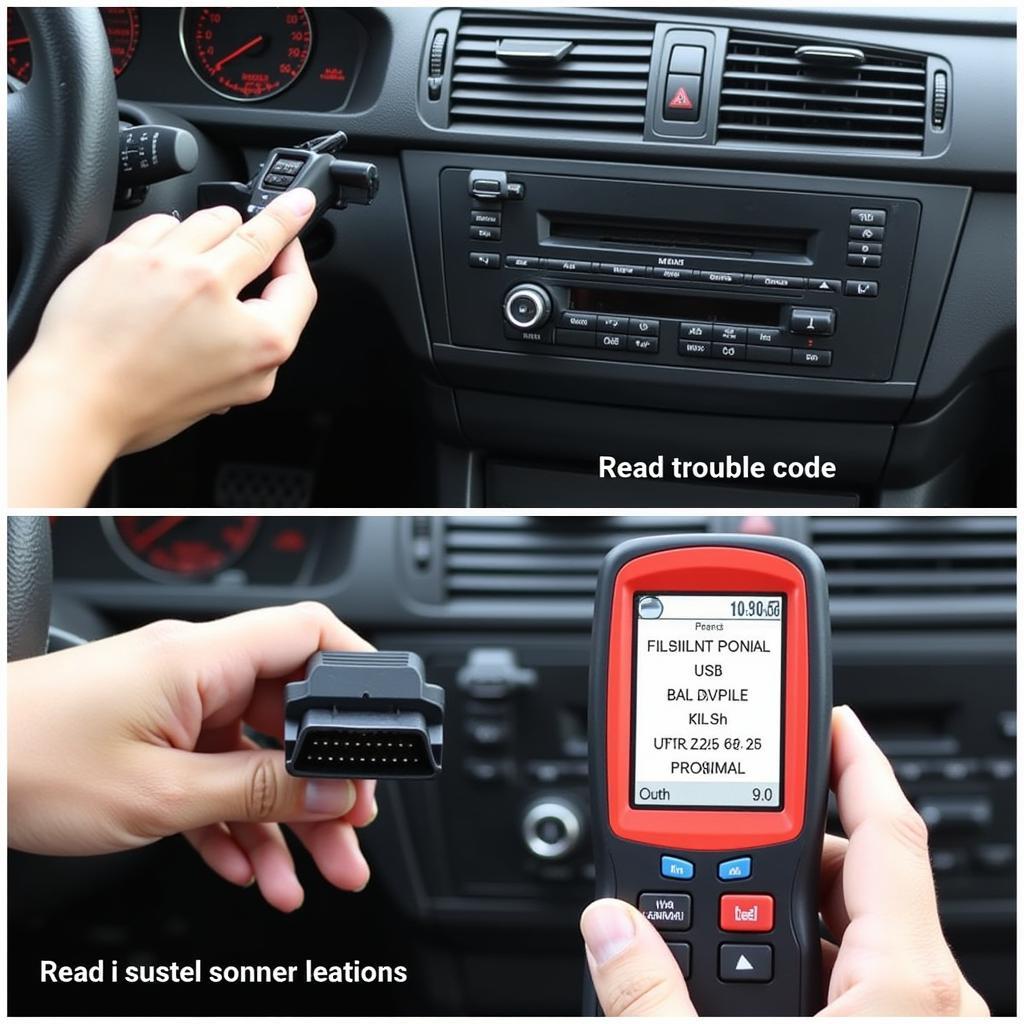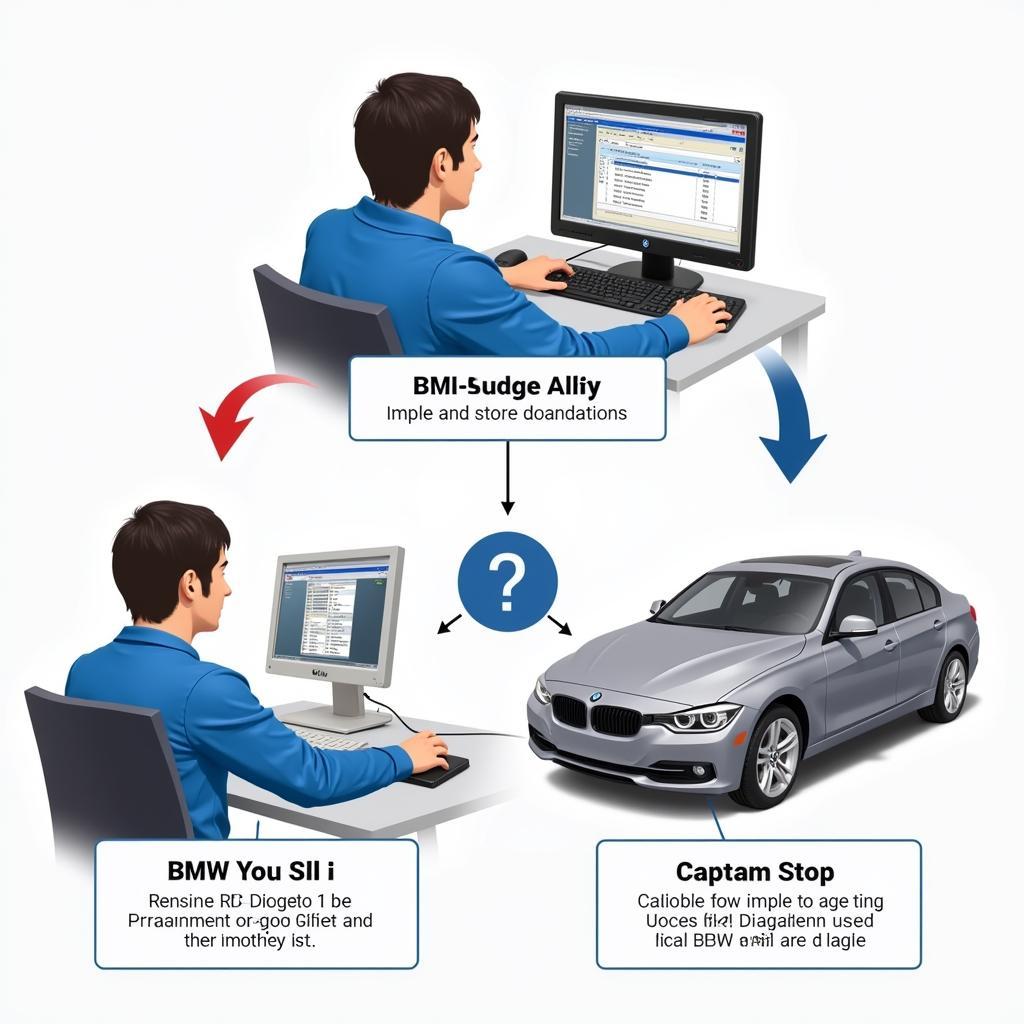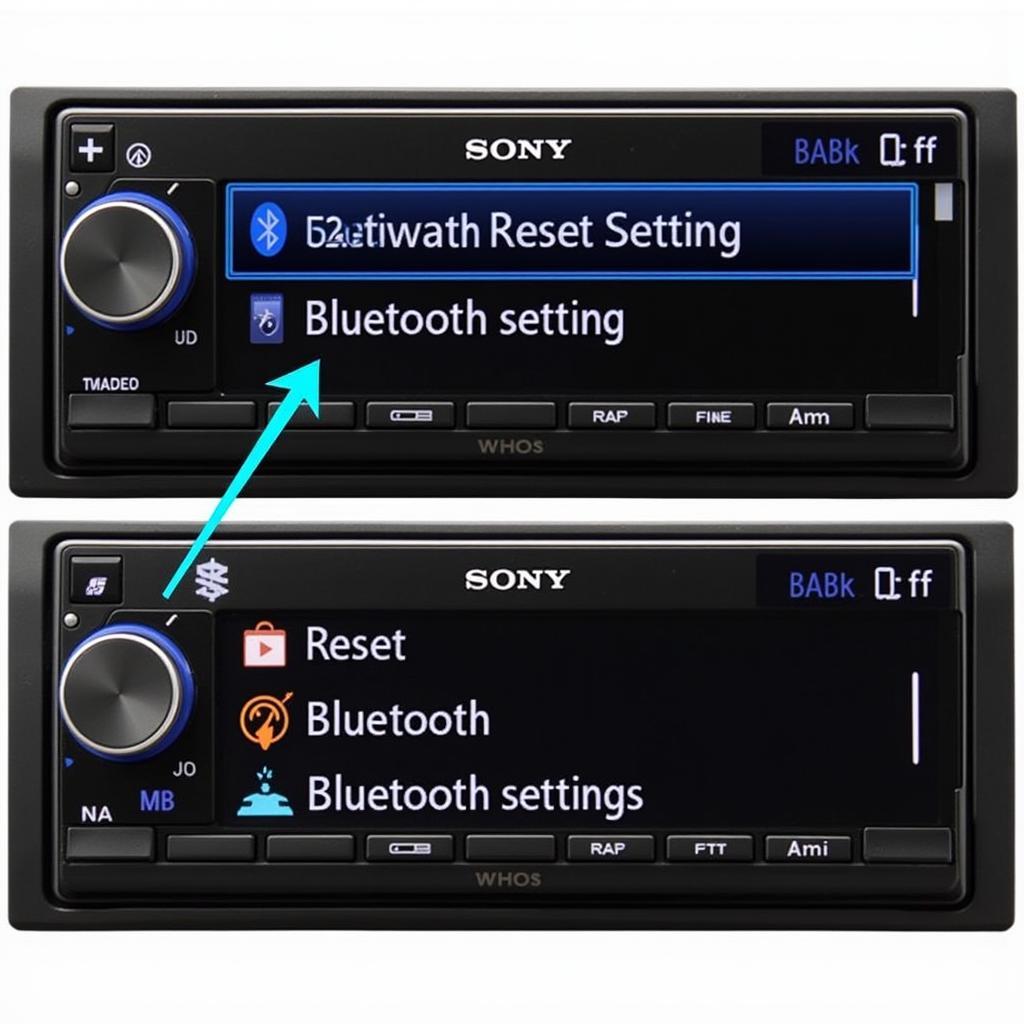The dreaded trifecta of warning lights: ABS, DSC, and brake light illuminated on your BMW 323i’s dashboard. This sight can strike fear into any driver, but don’t panic. Understanding the potential causes and solutions can help you navigate this situation effectively.
While these warning lights might seem intimidating, they are your car’s way of communicating a potential issue with your braking system. This article will guide you through the common causes, troubleshooting tips, and solutions for ABS, DSC, and brake warning lights on a BMW 323i.
Understanding the Warning Lights
Before diving into the potential causes, let’s clarify what each warning light signifies:
- ABS (Anti-lock Braking System): This light indicates a problem with the ABS system, which prevents wheels from locking up during braking.
- DSC (Dynamic Stability Control): This light suggests an issue with the DSC system, responsible for maintaining traction and stability during cornering and slippery conditions.
- Brake Warning Light: This light usually illuminates alongside the ABS and DSC lights, signifying a general problem with the braking system.
Common Causes of ABS, DSC, and Brake Warning Lights on BMW 323i
The simultaneous illumination of these lights can be attributed to several factors:
- Faulty Wheel Speed Sensors: Wheel speed sensors are crucial for ABS and DSC operation. A malfunctioning sensor can disrupt these systems, triggering the warning lights.
- Worn Brake Pads: As brake pads wear down, they can affect the brake fluid level and trigger the warning lights.
- Low Brake Fluid: Insufficient brake fluid, often due to leaks or worn brake pads, can activate the warning system.
- Faulty ABS Module: The ABS module controls the ABS system, and any malfunction can lead to warning lights.
- Steering Angle Sensor Problems: The steering angle sensor informs the DSC system about the steering wheel’s position. A faulty sensor can disrupt DSC functionality.
Troubleshooting Tips
If you encounter these warning lights, here’s what you can do:
- Check Brake Fluid Level: Ensure the brake fluid reservoir has sufficient fluid. If low, add the recommended brake fluid and inspect for leaks.
- Inspect Brake Pads: Check the thickness of your brake pads. Worn brake pads require replacement.
- Scan for Diagnostic Codes: Use an OBD-II scanner to retrieve diagnostic trouble codes, which can pinpoint the source of the issue.
 Using an OBD-II Scanner
Using an OBD-II Scanner
When to Seek Professional Help
While some issues might be resolved with basic troubleshooting, it’s crucial to seek professional assistance if:
- The warning lights persist after checking brake fluid and pads.
- You are uncomfortable working with car systems.
- The diagnostic codes indicate a complex issue like a faulty ABS module.
“Ignoring warning lights related to your braking system is never a good idea,” says Mark Stevenson, a senior automotive diagnostician with over 20 years of experience. “These systems are crucial for your safety, and delaying repairs can lead to more costly repairs down the line.”
Remote Diagnostics and Programming: A Modern Solution
Advancements in automotive technology have paved the way for remote diagnostics and programming. This service allows expert technicians to diagnose and resolve issues with your car’s software remotely, providing a convenient and efficient solution.
“Remote diagnostics and programming offer a significant advantage in diagnosing and resolving complex electronic issues in modern vehicles like the BMW 323i,” states Stevenson. “This technology allows us to pinpoint the root cause and often fix the problem without the need for a physical visit to the workshop, saving time and hassle for the car owner.”
 Remote Diagnostics and Programming for BMW
Remote Diagnostics and Programming for BMW
Conclusion
The appearance of ABS, DSC, and brake warning lights in your BMW 323i can indicate various issues, from minor sensor problems to more significant concerns like a faulty ABS module. While some fixes might be straightforward, don’t hesitate to seek professional help for accurate diagnosis and repair. Remember, a well-maintained braking system is paramount for your safety on the road.

